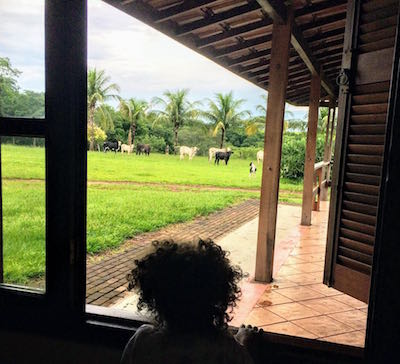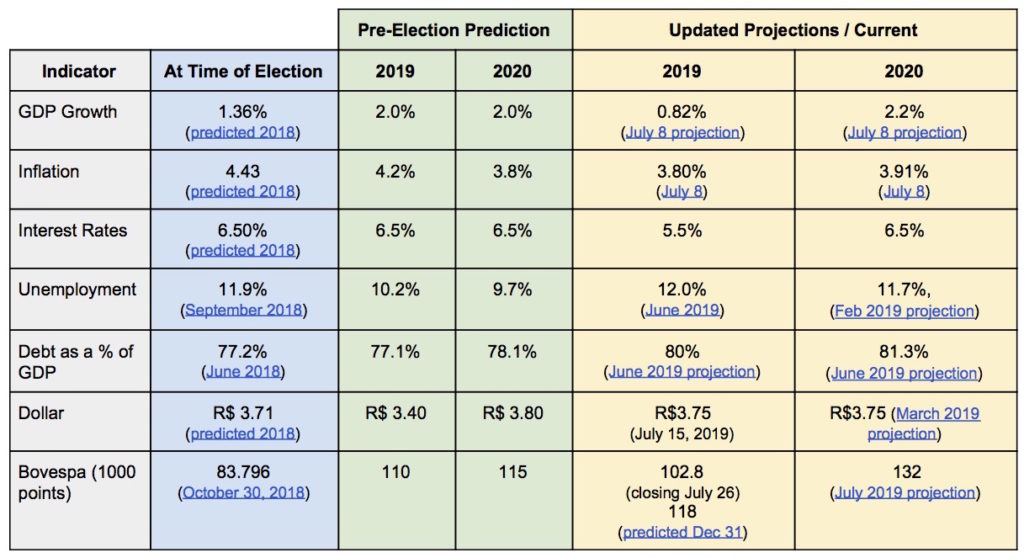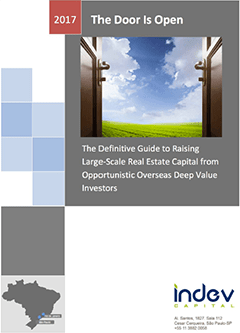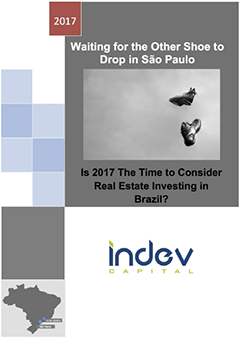There is a famous saying that Brazil is not for amateurs. As an American who has lived in Brazil for nearly 10 years, I can vouch that this statement is fully accurate. When people ask me for my opinion on various subject matters concerning Brazil, I often state that I have just started to understand what I do not understand. An example of this is that the Bovespa (Brazil’s stock market) is up almost 30% from last year and almost 15% from the beginning of this year of 2019. However, Brazil’s GDP decreased by 0.2% in the first quarter of 2019. Unemployment has barely lowered from its peak of 13.3% in May 2017, still measuring 12.3% two years later in May 2019 and ending the second quarter of the year at 12%. Corporate credit remains tight and BNDES, Brazil’s National Development Bank and a large source of capital for many Brazilian industries, has pulled back significantly. What gives?
Purpose of This Newsletter
This newsletter is targeted to global opportunistic investors interested in high risk-adjusted return opportunities. It is also targeted to those who have a general interest in Brazil. Importantly, I welcome and desire brutally honest feedback. Old readers of the newsletter may remember some of our earlier editions, and I apologize for my recent silence. In candor, since my heavy newsletter days about three or so years ago, my wife and I have had three kids. However, I am working on getting the company staffed to the point to be able to knock these out every two weeks. I will keep you updated!
Where Are We and How Did We Get Here?!
Less than a year ago, on October 27th, Brazil as a nation and yours truly individually were at an important juncture. Why? Brazil had gone through a brutal recession and we were a day away from the presidential election. The choices were tough at best. One candidate, the former mayor of São Paulo, was effectively controlled by former President Lula who was in jail. The second candidate was a legislator with very little proof of governing experience but a master of social media.

This almost four year old (two at the time of this picture) could have won Brazil’s 2018 presidential election. Why?
To be clear, at the time of the election many people were totally focused on electing a non PT (Workers’ Party) candidate. The PT had held the presidency for 13.5 out of the last 16 years, two full terms of Luiz Inácio Lula da Silva (“Lula”) and one and a half with Dilma Rousseff, who was impeached halfway through her second term, when her Vice President, from a different political party, assumed the presidency. Given the corruption scandals unearthed during the PT’s years in power, most famously the Operation Carwash (Lava Jato) investigations, people were dying for a change. For example, my almost four-year-old daughter is a smart child. She understands three languages and speaks whatever language three-and-a-half year olds speak. If she had assembled a good economic team and the choice was between her almost-four-year-old leadership and the PT option in the last election, I think she may have gained 50.1% of the vote.
Thus, the election came down essentially to for or against the PT (Partido dos Trabalhadores, Workers’ Party). As the PT party also led Brazil into its worst recession on record, people closed their eyes and, borrowing Tucker Carlson’s quote about Trump’s election, gave “a throbbing middle finger” to Brazil’s ruling class. It “was a gesture of contempt, a howl of rage, the end result of decades of selfish and unwise decisions made by selfish and unwise leaders.” Many people, your writer included but a non voter in Brazil, were scared of the consequences if necessary fiscal adjustments to Brazil’s budget were not made and doubted that the PT side had the will to make those hard decisions. Bolsonaro’s election, in some ways, was a vote of desperation which then turned to real hope and great expectations!
Expectations and Brazilian Optimism
 Brazil is an optimistic country. It is actually impressive. You can see it in language. An overweight person is a little strong (fortinho), a person that is a member of the working poor is a new middle class (nova classe média), an incredibly long wait in a restaurant is just a little time (um pouquinho). Culturally, it is not a surprise that the expectations for a Bolsonaro presidency were quite high.
Brazil is an optimistic country. It is actually impressive. You can see it in language. An overweight person is a little strong (fortinho), a person that is a member of the working poor is a new middle class (nova classe média), an incredibly long wait in a restaurant is just a little time (um pouquinho). Culturally, it is not a surprise that the expectations for a Bolsonaro presidency were quite high.
It was universally known that Bolsonaro was no Ronald Reagan, who served as Governor of America’s largest state before entering the White House. But many reasonable people projected their belief system onto this person. He was a blank slate with which many wrote their dreams, regardless of the packaging. I will admit, even your author was so relieved by the election that I projected my own hopes and dreams. Hey, I live here… cut me some slack OK?!
Boris, Bolsonaro, Trump – Slow Going
 Regardless of how you feel about these individuals, it is likely that you may have opinions about Boris and Trump’s hair styles, they represent a separation of the campaign and governing. Each of them has been masterful at what I have heard called “contextual intelligence” or feeling the mood of the people. However, and this does not mean that they are not effective in some areas (particularly the Donald has been effective in getting through tax cuts and some pull-back of the regulatory state), governing and campaigning are as different as swimming and golf.
Regardless of how you feel about these individuals, it is likely that you may have opinions about Boris and Trump’s hair styles, they represent a separation of the campaign and governing. Each of them has been masterful at what I have heard called “contextual intelligence” or feeling the mood of the people. However, and this does not mean that they are not effective in some areas (particularly the Donald has been effective in getting through tax cuts and some pull-back of the regulatory state), governing and campaigning are as different as swimming and golf.
Hence, Bolsonaro’s successful and completely unorthodox campaign (a near fatal stabbing does not happen every day on the campaign trail) did not provide a window into his ability to manage Congress. It did not take away from the fact that he is less than polished, has few executive skills, has suggested the appointment of his son to be US ambassador, is not sure-footed in navigating Congress, etc. So… why are we not in panic? He has one thing going incredibly well for him, and/or a group of people who see their one chance and are going for it. Bolsonaro does have a great economic team and a Lower House leader who can get things through Congress. This is what keeps the lights on.
The Economic Team
I recently had lunch with a former business partner of Paulo Guedes, Bolsonaro’s Economic Minister. It was an interesting conversation. We were talking about what keeps Mr. Guedes, to be clear a key part of the reason that things are moving forward with Pension reform, in his relatively thankless job. The answer was quite informative. This former partner of his said that these types of classic liberal economic thinkers in Brazil have never had a chance to act upon their ideas and this is their once in a lifetime chance to do so. Hence, they have brought world-class people to help as they are very aware that this opportunity does not happen all the time in Brazil.
Pension Reform Status
Importantly, the Pension reform is actually a constitutional amendment, thus it must go through a very rigorous approval process. While still early in the lengthy approval process, the Pension reform has passed the critical first Lower House vote. The amendment still needs to pass through a second Lower House vote, when additional changes to the text may be made. After approval in a second round of voting in the Lower House, the text then moves to the Senate for analysis by the Senate’s Constitutional and Justice Committee (CCJ, Comissão de Constituição e Justiça) and then a similar two vote approval process occurs in the Senate. If the Senate makes any additional changes to the amendment, the text returns to the Lower House of Congress for final approval of these changes and then becomes law.
The process is clearly far from complete, but this first vote was crucial. The reform needed 60% of the vote to move on to the next round, meaning 308 yes votes out of the total 513 members of the Lower House. The government expected the measure to receive 355 votes (69.2%) but it ended up passing with an unexpectedly high total of 379 votes (73.9% approval). Given how hard Pension form is to pass in almost any nation, this is an impressive feat. To be clear, Brazil’s pensions were some of the most generous in the world, so this reform is effectively a significant carve back of a large entitlement which was and is killing the budget. While we are not home yet, this is a very good first step. And yes, the financial markets and the real estate capital markets have reacted.
Boom Times in Brazil’s Capital Markets – Uncle Mauricio Comes Home
 In Japan, the retail investor is called Mrs. Watanabe. In Brazil, at least according to your author, he is called Uncle Mauricio. He has come back to the market in quite a big way. In fact, as his recent 12% per year government treasury is now an item of the past, Uncle Mauricio is seeking yield where he can get it. He is purchasing on the B3 (São Paulo Stock Exchange), which recently hit an all-time high on July 10th. He is looking at the FII (Brazilian REIT) market, which by May 31st of this year had reached a record value of R$48.3B, up from R$45B in 2018 and R$34.1B in 2017. He can also be seen seated in the front row of XP’s investor conferences (a firm of similar power to Merrill Lynch many years ago in the USA). The offices of Faria Lima and Leblon, the financial districts of São Paulo and Rio de Janeiro respectively, are percolating with activities and preparation for IPOs or secondary offerings, particularly in the FII (REIT) market. Let the good times roll!!!!!!
In Japan, the retail investor is called Mrs. Watanabe. In Brazil, at least according to your author, he is called Uncle Mauricio. He has come back to the market in quite a big way. In fact, as his recent 12% per year government treasury is now an item of the past, Uncle Mauricio is seeking yield where he can get it. He is purchasing on the B3 (São Paulo Stock Exchange), which recently hit an all-time high on July 10th. He is looking at the FII (Brazilian REIT) market, which by May 31st of this year had reached a record value of R$48.3B, up from R$45B in 2018 and R$34.1B in 2017. He can also be seen seated in the front row of XP’s investor conferences (a firm of similar power to Merrill Lynch many years ago in the USA). The offices of Faria Lima and Leblon, the financial districts of São Paulo and Rio de Janeiro respectively, are percolating with activities and preparation for IPOs or secondary offerings, particularly in the FII (REIT) market. Let the good times roll!!!!!!
But All is Not Well…
But hold on! GDP contracted by 0.2% in the first quarter and is only expected to grow by 0.82% in 2019. Unemployment has barely budged and millions of Brazilians, like those pictured, are desperately searching for work. Engineers are driving Uber. Things are still quite, quite tough in the real economy. Not surprisingly, the President’s approval rating has fallen from 69% in December 2018 right before taking office to 33% in July, six months into his term. The overhang of the downturn is still quite here and main street is still hurting.
The numbers speak for themselves. Readers of InDev Capital’s November 2018 White Paper on Brazil’s presidential election, What If Donald Trump Was From Rio?, may recognize the table below. In that publication, we included some predictions published by Exame, perhaps Brazil’s most important weekly business publication, that outlined the expected scenarios for 2019 and 2020 under a Bolsonaro presidency and under a Haddad (Bolsonaro’s main opponent) presidency. While Exame outlined both a negative and a positive scenario for each candidate, we conservatively included only the negative scenarios in our paper. In the table below, we have reproduced the predicted negative Bolsonaro scenario (in green) and updated predictions for these key economic indicators in yellow.
As you can see, inflation and interest rates have moved in a positive direction for global investors and portend to potentially robust future GDP growth and unemployment. Meanwhile, the real economy has actually moved in the opposite direction. In future publications, we will dive deeper into the real economy, however, it cannot be overstated how many business decisions have been on hold waiting to see if Pension reform happens. On this point, things truly have been “stuck” this year.
Opportunity or a $#%@ Show?
Obviously, one must be unemotional as an investor. This bifurcation in the marketplace provides an opportunity. Intelligent and careful large-scale capital can take advantage of the overhang in private market transactions. Many asset owners are still in distress from the last downturn and the lack of economic pick up that was expected in 2019. The white flag is on the desk and many asset owners are secretly waving it saying, “Please, come help…”
In addition, there are select sectors where there are tremendous growth stories but there is no capital. For opportunistic investors, we suggest a look at two main areas: one, dislocations or pull-back of capital, for example where BNDES has pulled back or where people are massively over-levered; and two, opportunities where Brazil has a significant competitive advantage, which is often in agricultural or energy related assets.
Currently, InDev Capital is focused on middle-market sale-leaseback, digital infrastructure, and corn ethanol in Brazil (this last one is a very unobvious trade but quite interesting). None of these trades are cookie cutter and all take some time to understand. However, for those willing to put in the effort, things have rarely been better in Brazil for opportunistic investors.
Exit options exist via Brazil’s capital markets, lower-cost (relative for Brazil) refinancing, and the overhang of the downturn still playing out in the real economy. Friends, it’s time to sharpen the pencils and get to work!
Stay in Touch – Hoping a Large Bag of Cash Hits Your Desk Soon!
Have a Great Day!
Joseph






